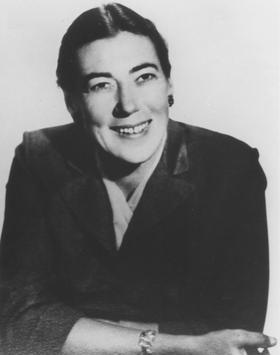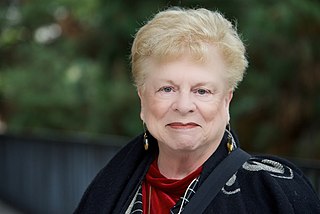Related Research Articles

The field of psychology has extensively studied homosexuality as a human sexual orientation. The American Psychiatric Association listed homosexuality in the DSM-I in 1952, but that classification came under scrutiny in research funded by the National Institute of Mental Health. That research and subsequent studies consistently failed to produce any empirical or scientific basis for regarding homosexuality as anything other than a natural and normal sexual orientation that is a healthy and positive expression of human sexuality. As a result of this scientific research, the American Psychiatric Association removed homosexuality from the DSM-II in 1973. Upon a thorough review of the scientific data, the American Psychological Association followed in 1975 and also called on all mental health professionals to take the lead in "removing the stigma of mental illness that has long been associated" with homosexuality. In 1993, the National Association of Social Workers adopted the same position as the American Psychiatric Association and the American Psychological Association, in recognition of scientific evidence. The World Health Organization, which listed homosexuality in the ICD-9 in 1977, removed homosexuality from the ICD-10 which was endorsed by the 43rd World Health Assembly on 17 May 1990.

Evelyn Hooker was an American psychologist most notable for her 1956 paper "The Adjustment of the Male Overt Homosexual" in which she administered several psychological tests to groups of self-identified male homosexuals and heterosexuals and asked experts to identify the homosexuals and rate their mental health. The experiment, which other researchers subsequently repeated, argues that homosexuality is not a mental disorder, as there was no detectable difference between homosexual and heterosexual men in terms of mental adjustment.
Robert Perloff was an American psychology and business administration professor emeritus, who taught at Purdue University and the University of Pittsburgh. He was a president of the Association for Consumer Research and the American Psychological Association.
Gregory M. Herek is a researcher, author, and professor of psychology at the University of California at Davis (UCD). He has conducted extensive research on prejudice against sexual minorities, and coined the term sexual prejudice as a replacement for homophobia to describe this phenomenon. Herek argued that using the term homophobia incorrectly assumes that negative responses to lesbian, gay, and bisexual people are founded in pathological, irrational fear, whereas psychological research indicates they are more accurately regarded as a form of prejudice. Herek is an openly and prominent gay psychologist. Herek is considered one of the most influential scholars of sexual minorities.

Bisexuality is a romantic or sexual attraction or behavior toward both males and females, to more than one gender, or to both people of the same gender and different genders. It may also be defined to include romantic or sexual attraction to people regardless of their sex or gender identity, which is also known as pansexuality.
Sexual fluidity is one or more changes in sexuality or sexual identity. Sexual orientation is stable and unchanging for the vast majority of people, but some research indicates that some people may experience change in their sexual orientation, and this is slightly more likely for women than for men. There is no scientific evidence that sexual orientation can be changed through psychotherapy. Sexual identity can change throughout an individual's life, and does not have to align with biological sex, sexual behavior, or actual sexual orientation.

Dorothy Riddle is an American-Canadian psychologist, feminist and economic development specialist. She is known as the author of the Riddle homophobia scale and published work on women's studies, homophobia, services and metaphysics.
Ellyn Kaschak, is an American clinical psychologist, Professor of Psychology at San Jose State University. She is one of the founders of the field of feminist psychology, which she has practiced and taught since 1972. Her many publications, including Engendered Lives: A New Psychology of Women's Experience, and Sight Unseen: Gender and Race through Blind Eyes, have helped define the field. She was the editor of the academic journal, Women & Therapy. for twenty years.
Cheshire Calhoun is a professor of Philosophy at Arizona State University and research professor at the Center for the Philosophy of Freedom at the University of Arizona. She is best known for her work in feminist philosophy as well as writing on gay and lesbian philosophy and the morality of same-sex marriage.

Nadine J. Kaslow is an American psychologist, the 2014 president of the American Psychological Association (APA) and the editor of the Journal of Family Psychology. Before her current affiliation with Emory University, Kaslow worked at Yale University. She was recipient of the 2004 American Psychological Association award for Distinguished Contributions to Education and Training in Psychology.
Lisa M. Diamond is an American psychologist and feminist. She is a professor of developmental psychology, health psychology and gender studies at the University of Utah. Her research focuses on sexual orientation development, sexual identity, and bonding.
Lisa A. Goodman is an American counseling psychologist known for her research on domestic violence and violence against women. She is Professor of Counseling Psychology at the Lynch School of Education at Boston College. Goodman is a Fellow of the American Psychological Association, Division of Counseling Psychology.
Beverly Greene is a professor in the Department of Psychology at St. John's University. She is a clinical psychologist known for her work on sexism, racism, and analyzing the intersectionality of social identities. As a specialist in the psychology of women and of gender and racial issues in the practice of psychotherapy, Greene has also created many public health frameworks for understanding mental health in marginalized communities. She is the author of close to 100 psychological literature publications. Greene is involved with the Association for Women in Psychology and the Society for the Psychology of Women. She is one of sixteen women to have received the Distinguished Publication Award (DPA) from the Association for Women in Psychology in 2008.
Paula R. Pietromonaco is an American psychologist and principal investigator of the Growth in Early Marriage Project at University of Massachusetts, Amherst. She is the editor-in-chief of the journal Emotion, as well as the associate editor of Journal of Personality and Social Psychology: Interpersonal Relations and Group Processes section.
Silvia Sara Canetto is a psychologist known for her research in diversity issues related to suicidal behaviors, aging, and end of life. She is a professor of applied social health psychology, and counseling psychology at Colorado State University (CSU).
Dawn Marie Szymanski is an American psychologist. She is a Full professor and Editor-In-Chief of the Society for the Psychology of Women's journal, Psychology of Women Quarterly.

Oliva Maria Espín is a Cuban American counseling psychologist known for her pioneering intellectual contributions to feminist therapy, immigration, and women's studies, and her advocacy on behalf of refugee women to help them to gain access to mental health services. Her interdisciplinary scholarly work brings together perspectives from sociology, politics, and religion to further understanding of issues and barriers related to gender, sexuality, language, and race. She is in the vanguard of transnational psychology, that applies transnational feminist lenses to the field of psychology to study, understand, and address the impact of colonization, imperialism, and globalization. She is the first Latina Professor Emerita of Women’s Studies at San Diego State University.
Ellen Kitch Childs was an American clinical psychologist and a lesbian activist known for her participation in the women's liberation movement in North America and for advocating for minority women, prostitutes, gays and lesbians. She was a founding member of the University of Chicago's Gay Liberation and the first African American woman to earn her doctorate degree in Human Development at the University of Chicago.

Lillian Comas-Díaz is an American psychologist and researcher of multiethnic and multicultural communities. She was the 2019 winner of American Psychological Association (APA) Gold Medal Award for Life Achievement in the Practice of Psychology. In 2000, she received the APA Award for Distinguished Senior Career Contribution to the Public Interest.
Jessica Henderson Daniel is a psychologist and educator, known for her work on mental health in the Black community, racial trauma, and the effects of stress and violence on Black children and adolescents. Daniel was the first African American woman to lead the American Psychological Association (APA), serving her term as President of the organization in 2018.
References
- ↑ O'Connell, Agnes and Nancy Felipe Russo (1990). Women in Psychology: A Bio-bibliographic Sourcebook. Greenwood Publishing Group. p. 319. ISBN 0313260915.
- ↑ "Bonnie Strickland". Psychological and Brain Sciences at UMass Amherst.
- 1 2 3 4 5 "Bonnie Strickland - Psychology's Feminist Voices". Archived from the original on 2019-07-30. Retrieved 2019-04-28.
- 1 2 Johnson, Kathryn (June 15, 1965). "Male Students 'Communicate' with Youthful College Dean". The News and Courier . Retrieved September 5, 2013.
- ↑ Oldfield, Kenneth; Johnson, Richard Greggory III, eds. (2008). Resilience: Queer Professors from the Working Class. SUNY Press. pp. 101–114. ISBN 978-0791477410.
- 1 2 "Honored for their vision". APA Monitor on Psychology. 32 (11): 80. December 2001. Retrieved September 6, 2013.
- ↑ "Bonnie R. Strickland, PhD". www.apa.org. Archived from the original on 2019-04-13.
- ↑ "Bonnie R. Strickland". University of Massachusetts Amherst . Retrieved September 5, 2013.
- ↑ "Strickland-Daniel Mentoring Award". American Psychological Association . Retrieved September 5, 2013.
- 1 2 "Strickland Honored for Lifetime Achievement by American Psychological Association".